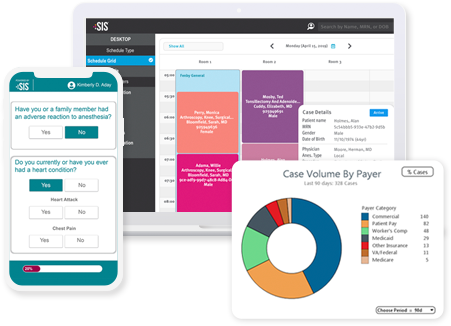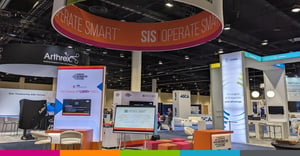As interoperability continues to take on greater importance for ASCs, understanding what interoperability is and isn't will be critical for helping ASC managers ensure they are making the best IT decisions for their centers.
Every industry has a unique vocabulary, and healthcare is no exception. The problem: some of those sticky, often-used words take on a life of their own, are easily misunderstood, and can even end up misused to the point of meaninglessness.
These so-called "buzzwords" — and their actual meanings — may seem inconsequential on the surface, but if we are going to effectively communicate and address challenges in an industry as complex as healthcare, it's important that we all clearly understand the terms we hear every day. To this end, let’s define one of the biggest buzzwords in healthcare and within the ambulatory surgery center industry today: interoperability. It's a term that people often use without knowing what it really means.
As the healthcare industry increasingly promotes the adoption of interoperable software, interoperability continues to take on greater importance for ASCs. Understanding what interoperability is and isn't will be critical for helping ASC managers ensure they are making the best IT decisions for their centers.
Interoperability isn't integration
One of the most important things for surgery centers to know about interoperability is that it's not synonymous with integration. People often use the words interoperability and integration interchangeably, but there's a substantial difference between the two concepts. Integration refers to connecting applications so that data from one system can be accessed by the other one. But integration involves a third party — in software terms, middleware — that translates the data and makes it "work" for the receiving system. It's not a direct path for information to get from point A to point B in this scenario.
Interoperability is real-time data exchange between ASC systems without middleware
When ASC systems are interoperable, they have the ability to not only share information but to interpret incoming data and present it as it was received, preserving its original context.
In layman's terms: interoperable systems speak the same language.
On the other hand, integration is more like having a conversation through an interpreter. Think of it as if you went to Canada not knowing how to speak French and need two Germans to help you communicate: one who speaks English and one who speaks French.
With interoperability, everybody speaks English — or German or French or whatever the agreed-upon language is. The point is that the systems can actually talk to each other with no added complexity or delay.
But this is about more than semantics.
Currently, most data exchange in the ASC industry is still the result of integration, but achieving interoperability is vital to ambulatory surgery center operations. Why? The immediate access to information that interoperability makes possible allows for both a complete view of the patient (necessary to provide the highest quality care) and the ability to be agile when it comes to complying with requests and reporting requirements. And these data-driven activities are increasingly key to surgery center success, especially as we continue moving toward a value-based healthcare system.
This level of information access is particularly important for ASCs as they are entities typically operating outside of hospitals/health systems (which often have their own, closed data systems). In an interoperable world, all stakeholders in the continuum of care will be able to easily access and use the data within other systems, making up-to-date — even up-to-the-minute — information sharing and retrieval possible.
Movement toward greater ASC interoperability
The change to true interoperability won't be an evolution. It'll be a revolution that requires a large amount of future-focused thinking.
Fortunately, the ONC (Office of the National Coordinator for Health Information Technology within the U.S. Department of Health) is leading the way with guidelines, but the onus is on providers as well to partner with vendors supporting the ONC's universal standards. At SIS, we work to be ahead of the curve, aligning our ASC solutions with the national interoperability requirements and making sure our future offerings will fit into the standards.
In this way, the future of interoperability is in our hands — and yours. And that's a sentiment needing no translation.
















